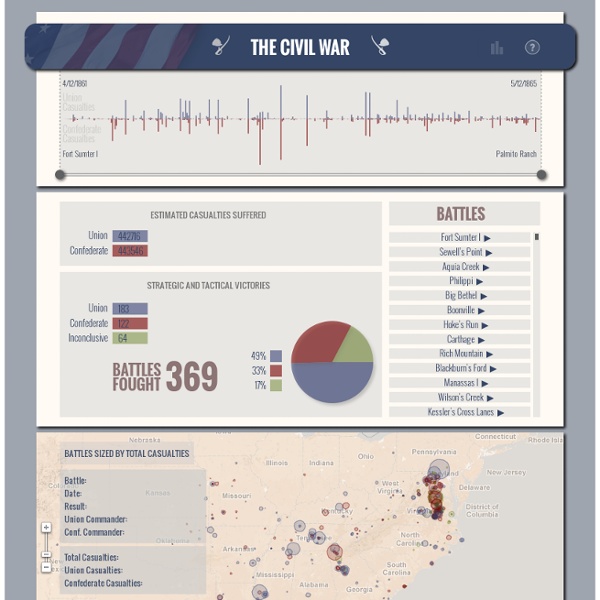



Secession" Secession, the withdrawal of part of a country or state from the central government's control. The withdrawal may be carried out peacefully or violently. Political conflicts that lead to secession are usually based on economic, cultural, or religious differences. In United States history the question of secession arose several times before the Civil War, but the term generally refers to the withdrawal of the Southern states from the Union in 1860–61. Secession has also been an issue in other countries. Panama in 1903 seceded from Colombia partly because of Colombian opposition to plans by the United States to construct the Panama Canal. In the United States From the time the U.S. In 1803–04 a small number of New England Federalists, facing decreased political power as a result of the admission of Southern states to the Union, proposed a separate nation to be called the Northeastern Confederacy.
Boston 1775 The Civil War In Pictures, Part 1: The Places Last year marked the 150th anniversary of the start of the American Civil War, a milestone commemorated by The Atlantic in a special issue (now available online). Although photography was still in its infancy, war correspondents produced thousands of images, bringing the harsh realities of the frontlines to those on the home front in a new and visceral way. As brother fought brother and the nation's future grew uncertain, the public appetite for information was fed by these images from the trenches, rivers, farms, and cities that became fields of battle. Use j/k keys or ←/→ to navigate Choose: This September 1862 photo provided by the Library of Congress shows Allan Pinkerton on horseback during the Battle of Antietam, near Sharpsburg, Maryland. Fort Sumter, South Carolina, April, 1861, under the Confederate flag. Yorktown, Virginia, Embarkation for White House Landing, Virginia, Photograph from the main eastern theater of war, the Peninsular Campaign, May-August 1862.
Who Invented the Term "Grassy Knoll?" by Gary Mack, CuratorThe Sixth Floor Museum at Dealey Plaza Thirty-five years after the Kennedy assassination and speculation about a conspiracy, "grassy knoll" has become a generic term connoting hidden plots and subterfuge. But who coined the phrase? Until now the answer has remained elusive, yet newly-discovered information identifies the source as a member of the news media. The Kennedy motorcade from Love Field through Dallas included a news "pool car" loaned by the telephone company. When the shots were fired, Mr. As officer Hargis ran, the pool car picked up speed entering the Triple Underpass to Stemmons Freeway and the wild race to Parkland Hospital. Meanwhile, in Anna, Illinois, WRAJ-AM owner and manager Don Michel responded to the UPI teletype warning bells and relayed those early reports to his startled listeners. One of the pages in our archive reveals that in a dispatch sent almost exactly 25 minutes after the assassination, Mr. Visit Sixth Floor Museum Web Site
The Vietnam War The Vietnam War The Causes of the Vietnam War America and Vietnam (to 1965) John F Kennedy and Vietnam America and Vietnam (1965-1973) America's involvement in Vietnam Ho Chi Minh Dien Bien Phu Vo Nguyen Giap National Liberation Front South Vietnamese Army Lyndon Johnson and Vietnam Gulf of Tonkin 1964 Operation Flaming Dart Operation Rolling Thunder General William Westmoreland War in Vietnam The Air War in Vietnam Ho Chi Minh Trail The Tet Offensive Khe Sanh My Lai Massacre Agent Orange Vietnamisation The Fall of Saigon The Impact of War on Vietnam Protests against the Vietnam War Kent State University Timeline of the Vietnam War Vietnamese Boat People Related Pages Online College and University Degree Guide Popular content Medieval Women History Learning Site Mary Queen of Scots What was the Cold War? The Warsaw Pact Powered by AddThis Follow Us Share on facebookFacebookShare on twitterTwitterShare on google_followGoogle AddThis Sharing FacebookTwitterMore Hide Show AddThisPrivacy Recommended for you Hideki Tojo The Bismarck Share
1. The Colonies: 1690-1715, in GROWTH, Becoming American: The British Atlantic Colonies, 1690-1763, Primary Resources in U.S. History and Literature, Toolbox Library, National Humanities Center The Colonies: 1690-1715 It does not seem difficult to find out the reasons why the people multiply faster here than in Europe. As soon as a person is old enough he may marry in these provinces without any fear of poverty. There is such an amount of good land yet uncultivated that a newly married man can, without difficulty, get a spot of ground where he may comfortably subsist with his wife and children. It is fitting to begin this toolbox on the British Atlantic colonies from 1690 to 1763 with the theme GROWTH. In this section we capture a snapshot of the British Atlantic colonies around the turn of the 18th century. Massachusetts. Discussion questions In American Beginnings: 1492-1690, the first toolbox in the Toolbox Library, we study all the peoples who settled North America—Native Americans, Norse, Spanish, Portuguese, French, English, Dutch, Swedish, and Russians. One final note on the names "England" and "Britain."
Scots Origins History - Scottish History